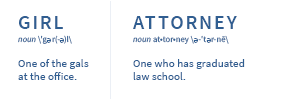From Glamour authored by Lindsey Shallon:
“Andrew Johnson was the last straw. In December, the black New Jersey teen was given an impossible ultimatum by a white referee at his wrestling meet: either cut his locs on the spot or forfeit the match. He had 90 seconds to decide.
There’s no tangible reason locs, braids, or twists should be viewed any differently from a buzzcut or blowout, and yet people of color are continually discriminated against for wearing their hair in styles endemic to their culture. In the professional world, it’s by managers’ calling locs “urban” or “unkempt”—like what happened to Destiny Tompkins, who was pulled aside by her (white, female) district manager at a New York Banana Republic in 2017 for wearing box braids. Or Chastity Jones, who was let go from an Alabama insurance-claims-processing company in 2010 for wearing her hair in dreadlocks. In schools, students like Johnson are often forced to comply to Eurocentric standards or face being reprimanded for hair that’s “unruly” or “distracting to others.”
Johnson chose to cut his hair, and the video of the referee standing behind him, demanding his locs be chopped shorter, shorter, shorter went viral.
The video caught the attention of the chair and commissioner of the New York City Commission on Human Rights, Carmelyn P. Malalis.
“That, to me, really brings up situations in which folks who have black hair—whether it is natural black hair or a hairstyle commonly associated with black people—are treated differently than other people,” she says. “Maybe somebody who was wearing long hair not in locs would be told ‘put it up in a band, put it up in a ponytail,’ but this kid was told he had to cut off his locs.”
As a former employees’ rights attorney and at her current post, Malalis has worked on a number of discrimination cases. “I can tell you that courts have bent themselves into pretzels to avoid calling hair discrimination out for what it is,” she says, noting that it’s a form of race discrimination, plain and simple. “They have wanted to say that these types of [grooming] policies are neutral policies, when in fact we know they disproportionally affect black people because they’re imposing these Eurocentric standards of beauty.”
That’s when Malalis began looking into New York City’s racial discrimination policies. “Following what we saw with report after report in the media of either students or employees being subjected to these racist policies, we said, ‘Enough is enough.’ We need to speak on this.” After poring through the language in city laws carefully, Malalis and her team were able to assert that it’s always been illegal to discriminate based on someone’s hairstyle. In February they issued new legal enforcement guidelines under which people can take legal recourse for hair discrimination and companies can be fined up to $250,000 for violations.”
Read the full story by FOLLOWING THE LINK

